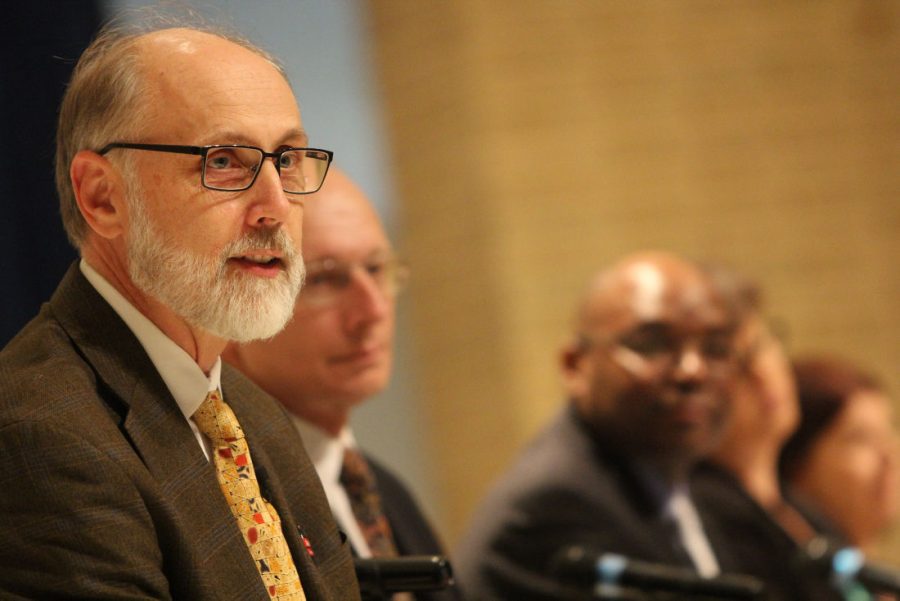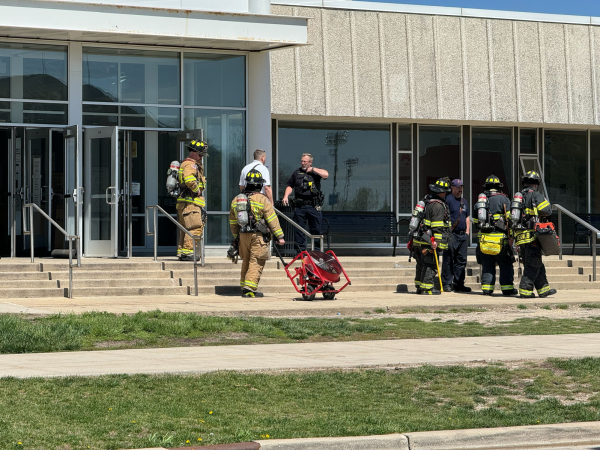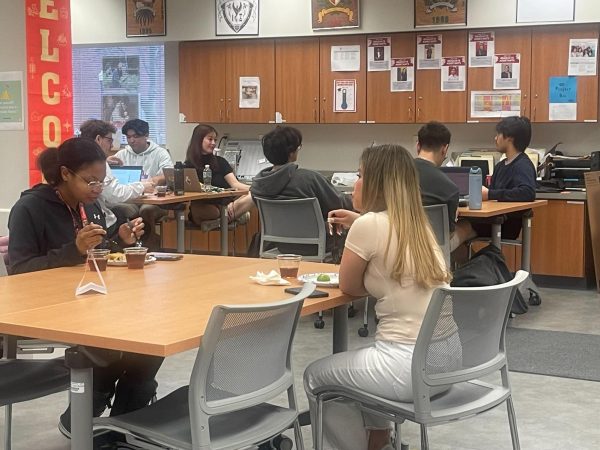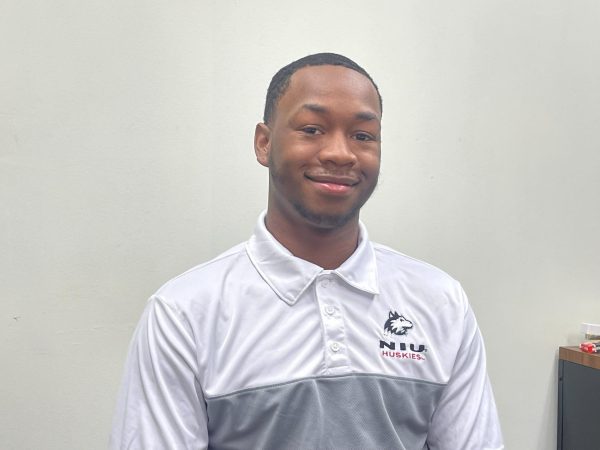Ill. to no longer pay insurance claims
NIU President Doug Baker (left); Allan Phillips, vice president of Administration and Finance; Eric Weldy, vice president of Student Affairs and Enrollment Management; Admissions Director Dani Rollins; and Lisa Freeman, executive vice president and provost, discuss state funding, falling enrollment and program prioritization during a town hall meeting Sept. 2 in the Student Holmes Center, Carl Sandburg Auditorium. Baker said NIU will find alternatives for the State Employees Group Insurance Program who will have to pay out of pocket for medical claims.
September 17, 2015
An Illinois agency has announced it is no longer able pay for state employee insurance claims without a state budget, a decision that could leave nearly 150,000 people to pay out of pocket for health care costs.
The Illinois Department of Central Management Services announced Sept. 9 it would soon no longer be able to pay for claims made by members of the State Employees Group Insurance Program. Meredith Krantz, Central Management Services spokesperson, said the agency has already stopped paying for claims as of Wednesday.
Out of the two types of plans available under the Employee Group Insurance Program, members on the self-insured plans will be dealt the largest and most immediate impact. Under self-insured plans, Illinois subsidizes claims made by members, a responsibility that may now fall on members alone unless their employers or medical providers foot the bill until a budget is determined, Krantz said.
Claims made by the more than 213,000 members of the fully-insured plans — where the state pays monthly premiums — will continue to be covered by insurance companies that operate their plans, Krantz said.
NIU President Doug Baker said the university is looking into ways to provide payment for employees who will have to pay for their health care up front.
“I know that any cash outlay upfront for our employees is bound to have a negative effect on you and your families, even with the prospect of being made whole at some point in the future,” Baker said in an email to NIU staff and faculty. “Rest assured that we are working on options like this to alleviate your concerns and give you a bit of additional peace of mind during this difficult period.”
Human Resource Services will provide information about options employees can take, Baker said, according to the email.
Celeste Latham, associate vice president of Administration and Human Resource Services, declined a request for comment.
Some Illinois hospitals have begun to cover claims since the start of the fiscal year on June 30, said Danny Chun, Illinois Hospital Association spokesman. The state was behind in claim payments by six months by the end of the last fiscal year — a debt that now totals in the tens of millions of dollars, Chun said.
“The important point is as long as this budget impasse continues, … real people’s access to health care services could be jeopardized,” Chun said. “We are urging the governor and the general assembly to get together and workout a fair budget … to ensure access to health care.
“We’re not blaming anybody for this. [We’re] just saying ‘Everybody, get together, work it out.’”














